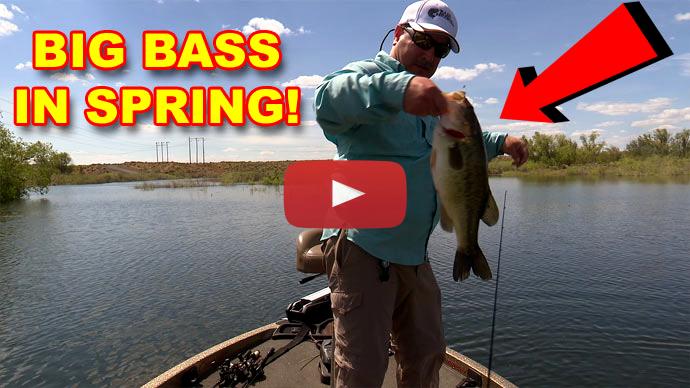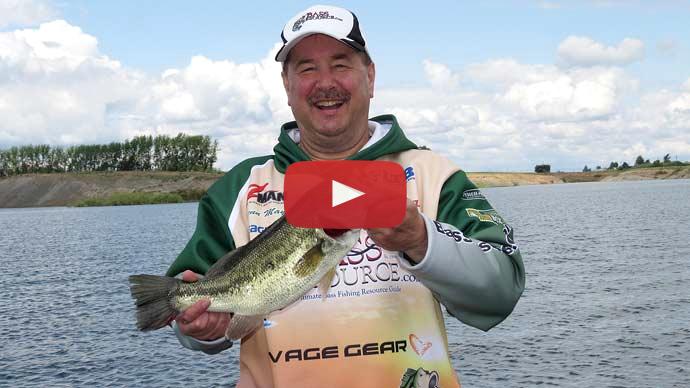Keri: There you go.
Glenn: There we go.
Keri: Where I said he’d be.
Glenn: Right here. Oh, boy. Come here. Come here, honey. You ate that thing. Both hooks. With both hooks. Look at that. Look at that. Both hooks right in his face. Think he wanted that? Again, just waiting. Let them blow up on it. Give it a second or two, reel down. If you see the line swimming off and starts to tighten up, crack that whip. Nice frog fish.
Why are so many big bass caught on slow-moving lures? Well, that's a really good question. There's a lot of different theories out there, but really the reason is, at least in my opinion, is bass, big bass especially aren't as quick and nimble and as agile as smaller bass. Now, if you look at minnows and baitfish, you can see they can dart and move very quickly and turn on a dime. Big bass that weigh nine, 10, 12 pounds, they just can't pivot that quick. They're not that agile. Plus the minnows don't have a lot of protein in them.
So, big bass have learned that there's a ratio of how much calories they are gonna burn versus how many they're gonna get as a reward. And it doesn't make sense to burn more calories than how many you're gonna end up eating, that's a losing proposition. So, big bass tend to go after smaller or slower-moving lures because they're easier to catch and they don't have to expend as much energy hunting them down and capturing them. Therefore, the less energy they have to expend with the greater the reward from a calorie perspective, the larger they're gonna grow. And so that's why big bass are caught on slower-moving lures more often than faster-moving lures.
If you have any questions, hey, feel free to send them in to me. Here's an email right here down below, or you can send it to us on our Facebook page. For more tips and tricks like this, visit BassResource.com.



